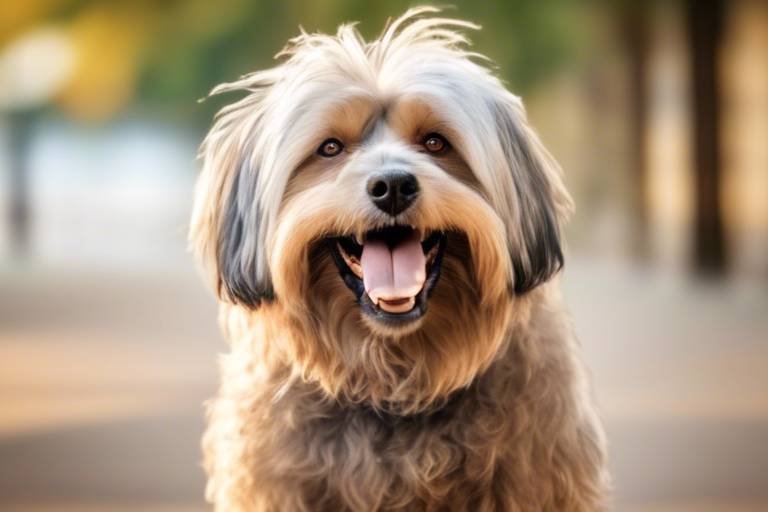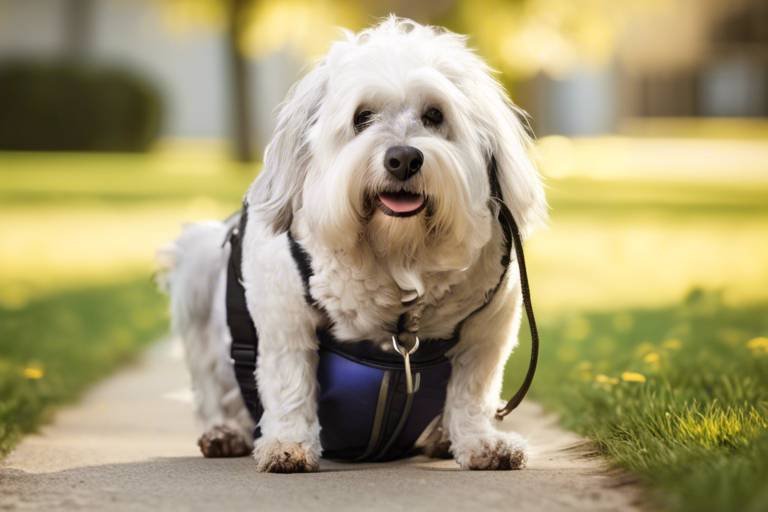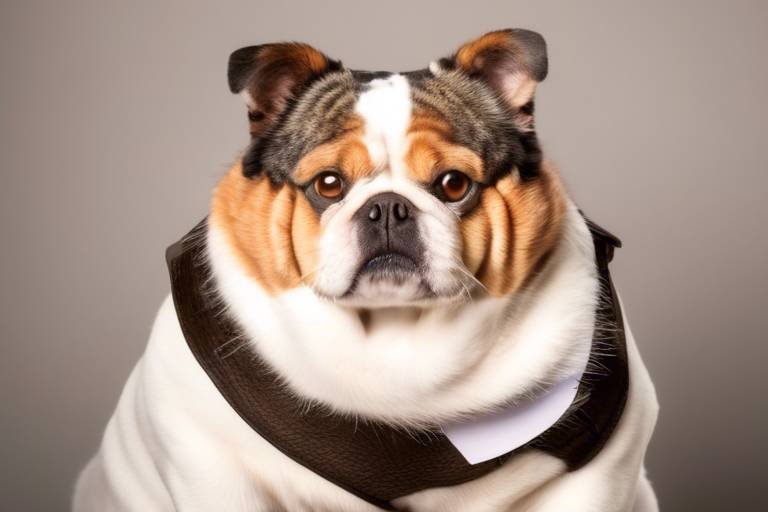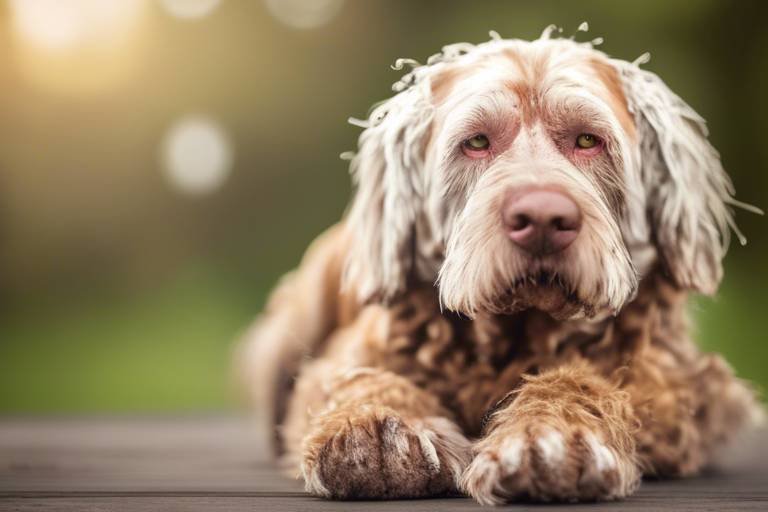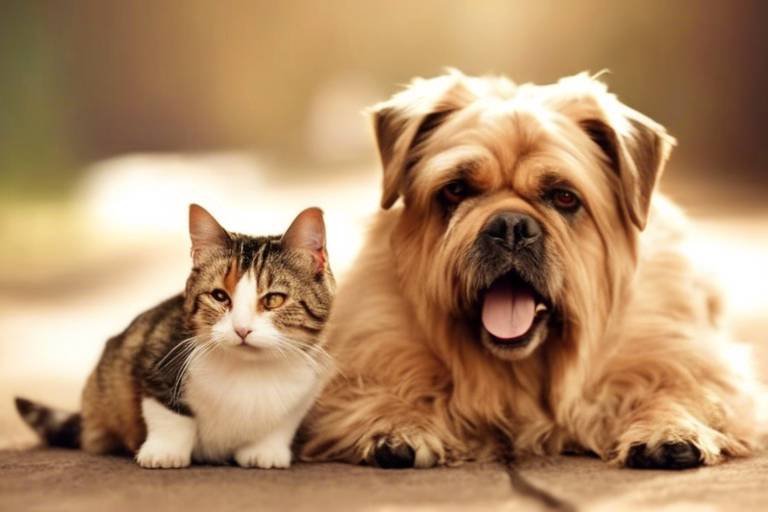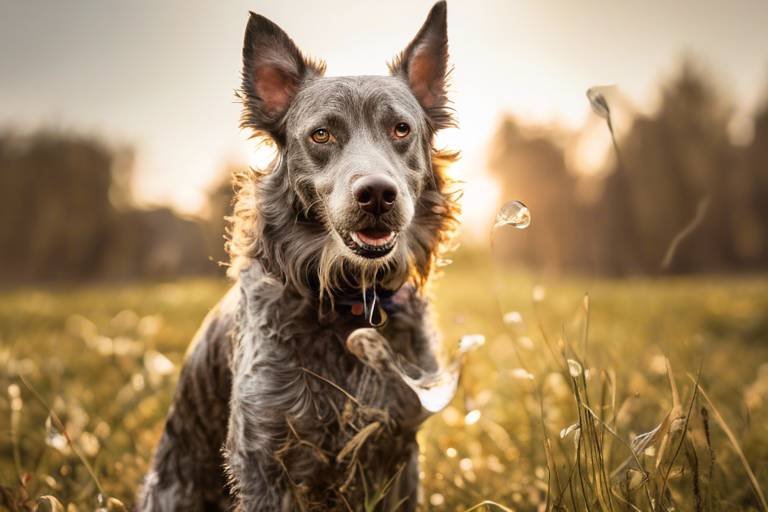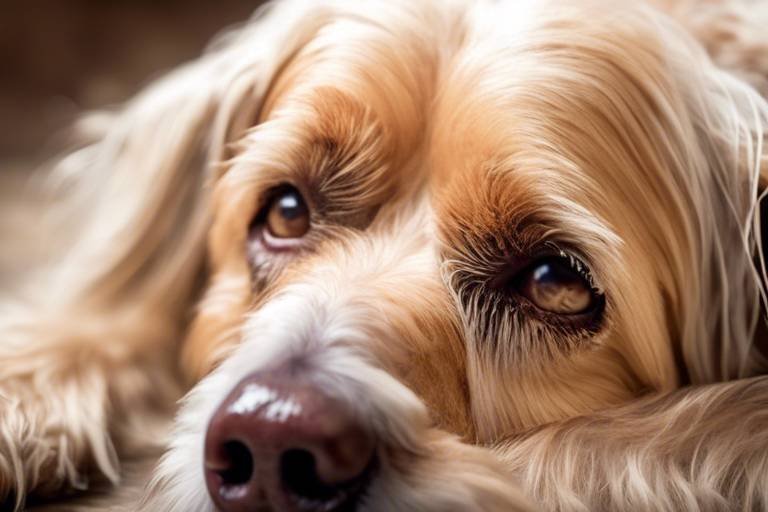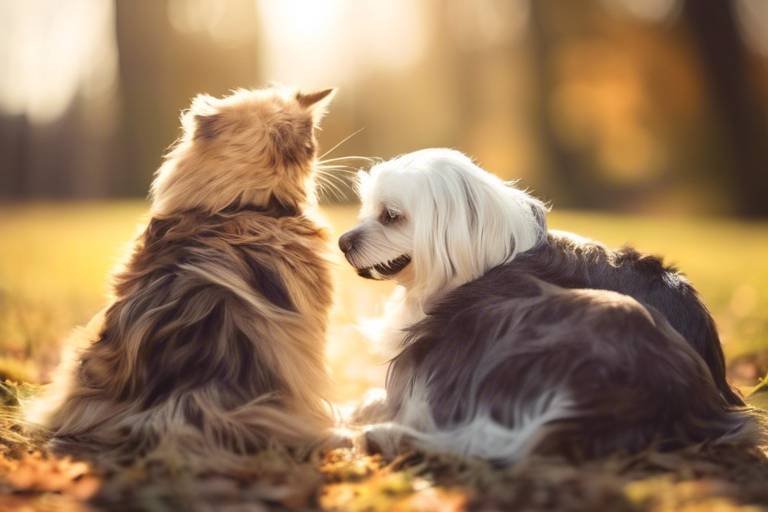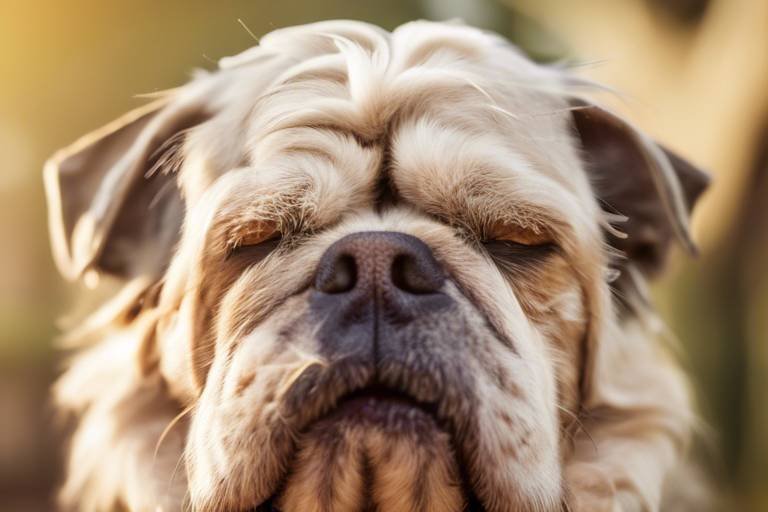The Best Dog Breeds for Seniors
Choosing the right dog breed can be a life-changing decision, especially for seniors seeking companionship. Dogs offer not just loyalty and love, but they also provide a sense of purpose and joy that can be incredibly uplifting. However, it's crucial to find a breed that aligns with the unique needs and lifestyle of older adults. In this article, we'll explore the best dog breeds for seniors, focusing on their temperament, size, and care needs. Whether you’re looking for a small lap dog or a more robust companion, there’s a perfect furry friend out there waiting for you!
Seniors often have different requirements when it comes to pet ownership compared to younger people. As we age, our physical capabilities may change, impacting how we care for a pet. For instance, a senior might prefer a dog that doesn’t require extensive exercise or one that is easy to groom. Emotional support is also vital; many seniors find comfort and companionship in a dog, which can help alleviate feelings of loneliness. Additionally, lifestyle factors such as living arrangements (e.g., apartments vs. houses) and mobility issues should be considered when selecting a dog breed. Understanding these unique needs is the first step in finding the perfect canine companion.
Small dog breeds are often ideal for seniors due to their manageable size and lower exercise demands. These pint-sized pups can easily adapt to apartment living and don’t require extensive outdoor space to thrive. Here are a couple of popular small breeds that make great companions for older adults:
Chihuahuas are lively, affectionate, and easy to care for. These tiny dogs pack a big personality into a small frame. They are known for their loyalty and can form strong bonds with their owners. Chihuahuas thrive on companionship, making them perfect for seniors who want a dog that will keep them company. Their small size means they don’t require much space, and they can get their exercise indoors through playtime. Plus, grooming is a breeze, which is a significant advantage for seniors who may struggle with more demanding breeds.
Pugs are known for their charming personalities and adaptability. With their wrinkled faces and curly tails, they are hard to resist! Pugs are playful yet calm, making them a great choice for seniors. They enjoy lounging around the house, but they also appreciate short walks, which can be beneficial for both the dog and the owner. Their affectionate nature means they love to cuddle, providing emotional support to their human companions. Best of all, pugs are relatively low-maintenance when it comes to grooming, making them easy to care for.
Medium-sized dogs can provide companionship without overwhelming seniors. These breeds often strike a balance between being playful and easy to manage. Here are a couple of medium breeds that are well-suited for older adults:
Cavalier King Charles Spaniels are gentle and affectionate, making them perfect companions for seniors. Their friendly demeanor and adaptability allow them to fit seamlessly into various lifestyles. They love to be around people and are known for their playful yet calm nature. Regular grooming is necessary, but their overall care needs are manageable. Plus, they enjoy short walks, which can be a delightful way for seniors to stay active while bonding with their furry friend.
Basset Hounds are laid-back and friendly dogs. With their droopy ears and soulful expressions, they are charming companions. These dogs are known for their easygoing nature, making them a great match for seniors who prefer a more relaxed lifestyle. Basset Hounds enjoy leisurely strolls and are perfectly content to lounge around the house. Their low exercise requirements and affectionate personality make them an excellent choice for older adults.
While larger breeds may require more space, some are still suitable for seniors. It’s essential to choose a calm and gentle dog that won’t overwhelm their owners. Here are a couple of large breeds that can be ideal for older adults:
Golden Retrievers are known for their friendly demeanor and loyalty. They are highly trainable, making them easy to manage for seniors who may not have experience with dogs. Their affectionate nature and desire to please make them wonderful companions. Golden Retrievers enjoy moderate exercise, which can help keep seniors active without being overly demanding. Their loving personality can bring joy and companionship to any senior household.
Labrador Retrievers are adaptable and loving companions. Known for their friendly disposition, Labs can easily fit into a senior's lifestyle. They require regular exercise, but their playful nature means that short walks or play sessions can be enjoyable for both the dog and the owner. Their intelligence and eagerness to please make training a breeze, which is an added bonus for seniors who might prefer a dog that is easy to manage.
1. What are the best dog breeds for seniors?
Some of the best dog breeds for seniors include Chihuahuas, Pugs, Cavalier King Charles Spaniels, Basset Hounds, Golden Retrievers, and Labrador Retrievers. These breeds tend to have manageable exercise needs and friendly temperaments.
2. How much exercise do these breeds require?
Most of the breeds mentioned require moderate exercise, such as short walks or playtime. It's important for seniors to choose a breed that matches their activity level.
3. Are small dogs easier to care for?
Small dogs often have lower exercise requirements and are easier to manage in smaller living spaces, making them a great choice for many seniors.
4. Can larger breeds be suitable for seniors?
Yes, some larger breeds, like Golden Retrievers and Labrador Retrievers, are known for their calm demeanor and can be suitable for seniors, especially if they enjoy moderate exercise.
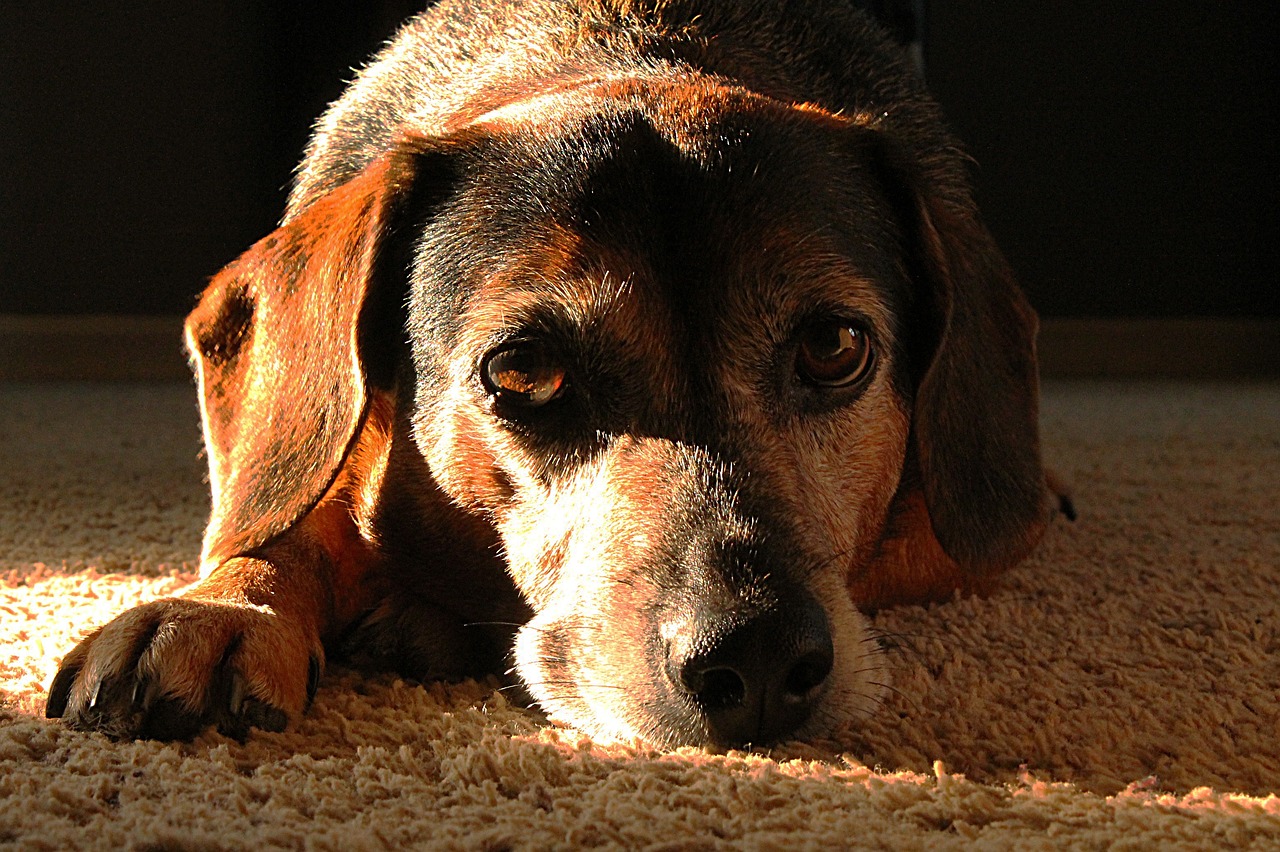
Understanding Senior Needs
When it comes to pet ownership, seniors have unique needs that should be carefully considered. As we age, our physical capabilities, emotional requirements, and lifestyle often change, which can impact the type of dog that would best fit into our lives. Understanding these factors is crucial in making an informed decision when selecting a furry companion.
Firstly, let's talk about physical needs. Seniors may face mobility challenges, which can make it difficult to care for a high-energy dog that requires extensive exercise. Therefore, it's essential to choose a breed that matches their activity level. For example, smaller breeds or those with lower exercise demands can be perfect for seniors who prefer leisurely walks rather than vigorous outdoor adventures.
Moreover, the emotional aspect is equally important. Pets can provide companionship, reduce feelings of loneliness, and even improve mental health. However, the temperament of the dog is key. A calm, gentle dog can offer comfort and support without overwhelming their owner. Many seniors find joy in the affectionate nature of certain breeds, which can help foster a strong bond.
Additionally, lifestyle factors play a significant role in the decision-making process. Consider the living situation of the senior. Do they live in a small apartment or a house with a yard? Are there any other pets in the home? These questions can help narrow down the list of suitable breeds. For instance, some dogs thrive in smaller spaces, while others need room to roam.
To summarize, here are some critical factors to consider when selecting a dog breed for seniors:
- Physical Capability: Choose a dog that matches the senior's physical activity level.
- Temperament: Opt for a calm and affectionate breed that provides companionship.
- Lifestyle: Assess the living situation and any other pets in the home.
By taking these factors into account, seniors can find a furry friend that not only fits their lifestyle but also enriches their daily lives. Remember, the right dog can bring joy, companionship, and even a sense of purpose, making the golden years even brighter.
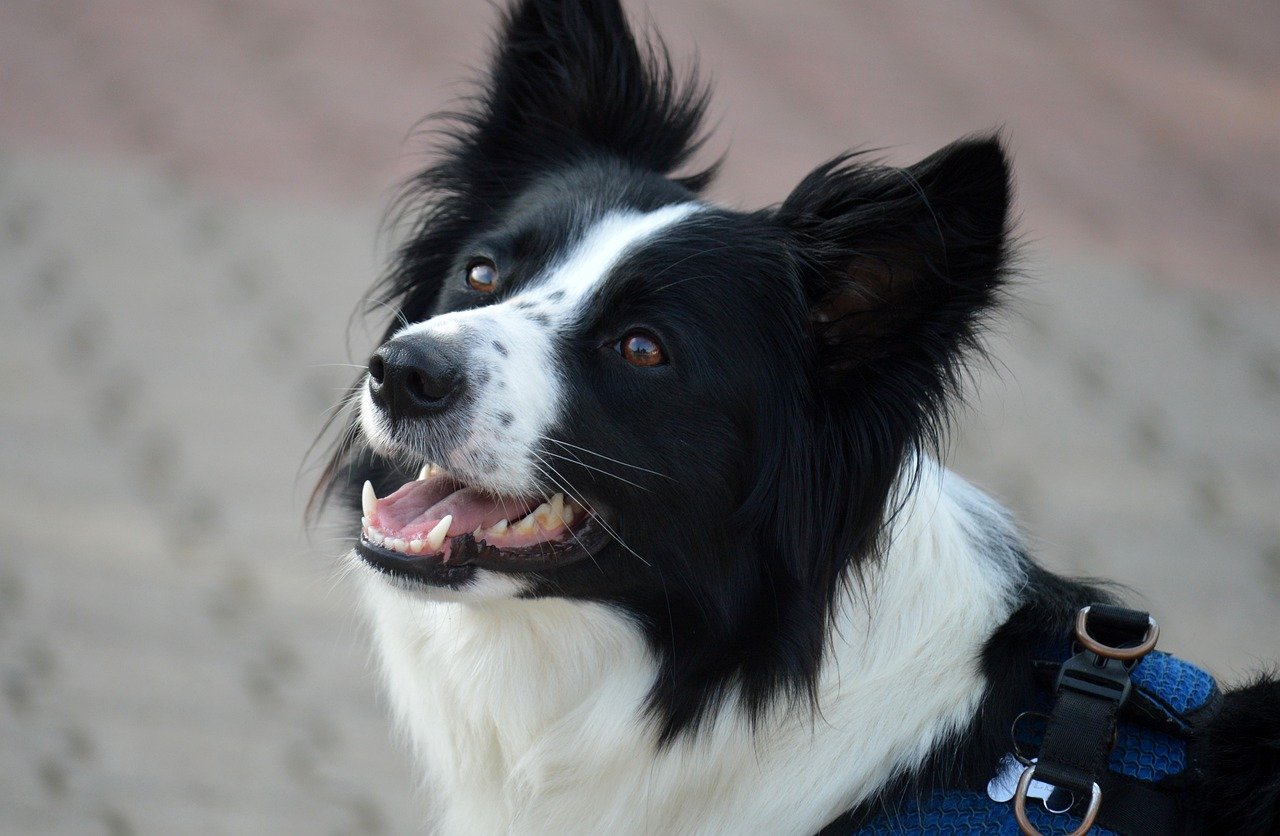
Small Dog Breeds
When it comes to choosing a furry friend for seniors, often steal the spotlight. Their manageable size, coupled with lower exercise demands, makes them a perfect match for older adults who may not have the energy for high-energy pups. Imagine curling up on the couch with a tiny companion, feeling their warmth as they snuggle next to you. It’s not just about having a pet; it’s about having a friend that fits seamlessly into your lifestyle. Let's dive into some of the most popular small dog breeds that make fantastic companions for seniors.
First up, we have the Chihuahua. These little balls of energy are not just cute; they are also incredibly affectionate. With their big personalities packed into tiny bodies, Chihuahuas are known for their loyalty and often form a strong bond with their owners. They thrive on companionship and love to be involved in every aspect of their owner's life. Plus, they don’t require extensive exercise. A short walk around the block or a play session in the living room is usually enough to keep them happy. Their low grooming needs also make them a great choice for seniors who may prefer a pet that doesn’t require frequent trips to the groomer.
Next, let’s talk about Pugs. These charming little dogs are famous for their wrinkled faces and playful nature. Pugs are adaptable and can easily adjust to their owner’s lifestyle, whether it’s a quiet day at home or a stroll in the park. Their friendly demeanor makes them excellent companions, and they love to cuddle! Just like Chihuahuas, Pugs don’t need a lot of exercise, which is a blessing for seniors who may have mobility issues. Their affectionate nature can bring a sense of joy and comfort, making them a delightful addition to any senior household.
Both Chihuahuas and Pugs are not only great companions but also relatively low-maintenance, which is essential for seniors looking for a pet that fits their lifestyle. However, it’s always important to consider individual personalities and needs when selecting a dog. Each dog, regardless of breed, has its unique quirks and traits that can enhance the bond between pet and owner.
Small dog breeds like Chihuahuas and Pugs can offer numerous benefits for seniors. Here’s a quick overview of why they might be the perfect choice:
- Manageable Size: Easy to handle and carry, making them ideal for seniors.
- Less Exercise Required: Short walks suffice, which is perfect for those with limited mobility.
- Companionship: Small dogs often form strong bonds with their owners, reducing feelings of loneliness.
- Low Grooming Needs: Many small breeds have minimal grooming requirements, saving time and effort.
In conclusion, small dog breeds are not just pets; they are companions that can dramatically improve the quality of life for seniors. Whether it’s the lively Chihuahua or the charming Pug, these breeds offer love, joy, and a sense of purpose. If you’re considering adding a furry friend to your life, think small; it just might be the best decision you ever make!
1. What are the best small dog breeds for seniors?
Some of the best small dog breeds for seniors include Chihuahuas, Pugs, and Yorkshire Terriers. These breeds are known for their affectionate nature and manageable size.
2. Do small dogs require a lot of exercise?
No, small dog breeds typically require less exercise compared to larger breeds. Short walks and indoor playtime are usually sufficient.
3. Are small dogs good for companionship?
Absolutely! Small dogs are often very affectionate and bond closely with their owners, making them great companions for seniors.
4. How much grooming do small dog breeds need?
Many small dog breeds have low grooming needs. Breeds like Chihuahuas require minimal grooming, while others, like Poodles, may need regular grooming.
Chihuahuas
When it comes to finding the perfect furry friend for seniors, often top the list. These tiny dogs pack a whole lot of personality into their petite frames. With their lively and affectionate nature, Chihuahuas can be the ideal companion for older adults looking for love and companionship. Their small size makes them easy to manage, whether it’s a quick trip to the park or a cozy evening on the couch. Imagine having a little bundle of joy snuggled up in your lap, providing warmth and comfort while you watch your favorite shows!
One of the most appealing aspects of Chihuahuas is their adaptability. They thrive in various living situations, whether it’s a spacious home or a cozy apartment. As long as they receive love and attention, these little dogs can adjust to their owner’s lifestyle. Plus, their low exercise needs mean they don’t require long, strenuous walks. A simple stroll around the block or some playtime in the living room can keep them happy and healthy.
Chihuahuas are also known for their loyalty. They tend to form strong bonds with their owners, often following them from room to room. This devotion can provide a sense of security and companionship for seniors, combating feelings of loneliness that can sometimes accompany aging. Their protective nature means they’ll be there to bark at any potential intruders, offering a sense of safety as well.
However, it’s important to remember that Chihuahuas can be a bit feisty! Their big personalities often lead them to believe they are much larger than they actually are. This can sometimes result in a stubborn streak, so a gentle but firm approach to training is essential. Consistent training will not only help curb any bad behaviors but also strengthen the bond between the dog and its owner. With the right guidance, Chihuahuas can be well-mannered companions.
In summary, Chihuahuas are a fantastic choice for seniors seeking a loving and loyal companion. Their small size, adaptability, and affectionate nature make them a wonderful addition to any household. So, if you’re considering welcoming a furry friend into your life, a Chihuahua might just be the perfect match!
- Are Chihuahuas good for seniors? Yes, Chihuahuas are often ideal for seniors due to their small size and affectionate nature.
- Do Chihuahuas require a lot of exercise? No, they have low exercise needs and can get sufficient activity through short walks and playtime.
- How do Chihuahuas behave around strangers? Chihuahuas can be protective and may bark at strangers, but proper socialization can help them be more comfortable.
- What training do Chihuahuas need? Consistent training is important to curb stubborn behavior and to reinforce good manners.
Pugs
Pugs are truly one of the most delightful dog breeds you could ever come across, especially for seniors looking for a loyal companion. With their charming personalities and adorable wrinkled faces, they have a way of brightening up any room they enter. These little bundles of joy are not only affectionate but also incredibly adaptable, making them a perfect fit for older adults who may have varying levels of energy and mobility.
One of the best traits of pugs is their playful nature. They love to engage in short bursts of playtime, which can be perfect for seniors who might not be able to commit to long walks or strenuous activities. A simple game of fetch in the backyard or a playful tug-of-war with a soft toy can provide both the pug and their owner with a great deal of joy. Moreover, their friendly disposition means they often get along well with other pets and can be a wonderful addition to a household that may already have furry friends.
When it comes to care, pugs are relatively low-maintenance. They don't require extensive grooming, and their short coat means that brushing them once a week is usually sufficient. However, it’s important to keep an eye on their wrinkles and clean them regularly to prevent any skin issues. They thrive on companionship and love to be near their owners, which can be comforting for seniors who may feel lonely at times. Their affectionate nature makes them excellent lap dogs, happily snuggling up on the couch while watching TV or enjoying a quiet afternoon.
Despite their small size, pugs do have some health considerations that seniors should be aware of. They are brachycephalic, meaning they have short noses, which can lead to breathing difficulties, especially in hot weather. It's crucial for pug owners to ensure their furry friends stay cool and avoid strenuous exercise during heatwaves. Regular vet check-ups are essential to monitor their health and address any potential issues early on.
In conclusion, if you're a senior looking for a loving and loyal companion, a pug could be the perfect match for you. Their playful yet laid-back nature, combined with their affectionate demeanor, makes them an ideal pet for those seeking a furry friend to share their golden years with. After all, life is better with a pug by your side!
- Are pugs good with children? Yes, pugs are generally known to be gentle and playful, making them great companions for children, as long as interactions are supervised.
- How much exercise do pugs need? Pugs require moderate exercise. Short walks and playtime are usually sufficient to keep them healthy and happy.
- Do pugs shed a lot? Pugs do shed, but regular brushing can help manage the amount of loose fur in your home.
- What is the lifespan of a pug? Pugs typically live between 12 to 15 years, with proper care and regular veterinary check-ups.
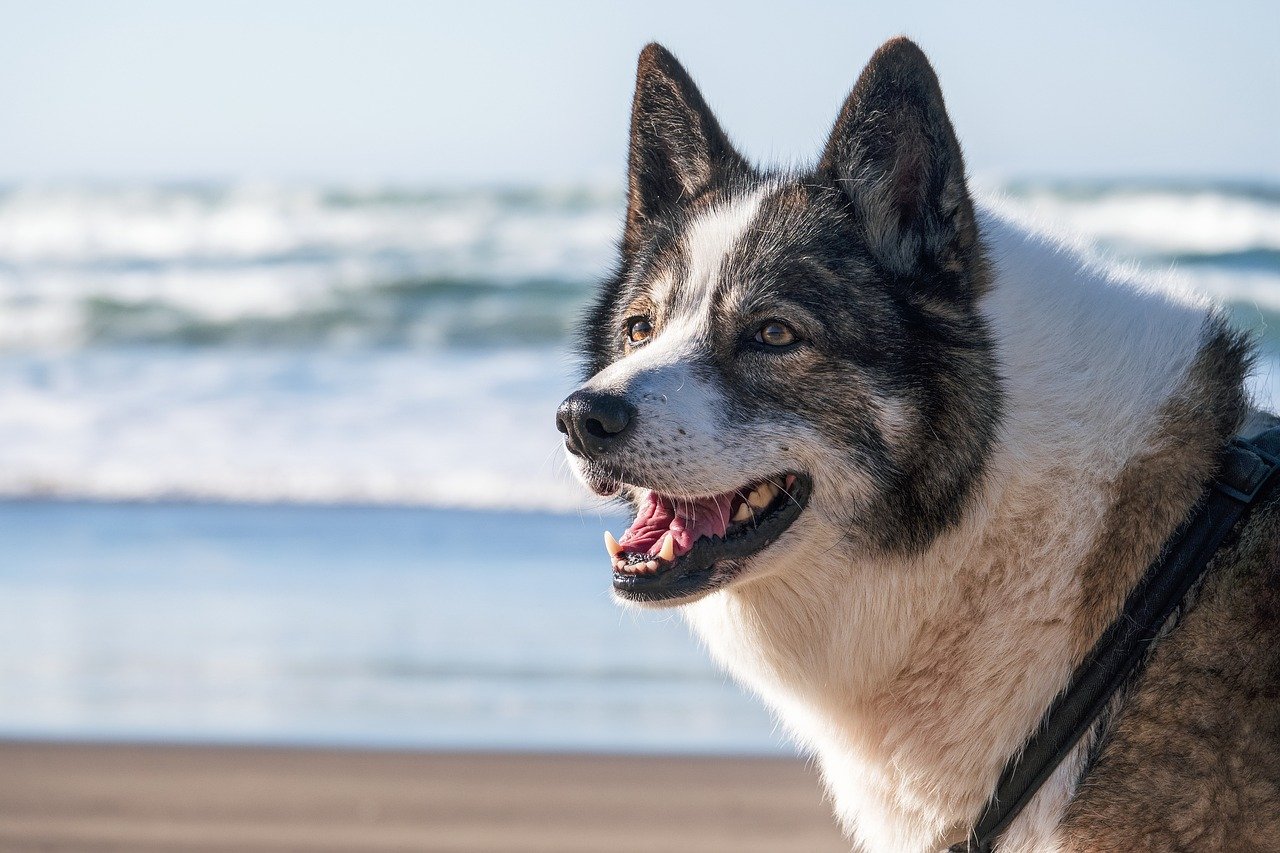
Medium Dog Breeds
When it comes to finding the perfect furry friend for seniors, often strike the ideal balance between companionship and manageability. These dogs typically weigh between 20 to 60 pounds, making them neither too small nor too large, which can be a significant advantage for older adults. They offer the warmth and affection of a canine companion without overwhelming their owners with excessive exercise needs or space requirements. Let's dive into some of the most suitable medium breeds that can enrich the lives of seniors, providing joy, comfort, and a sense of purpose.
One of the standout choices in the medium dog category is the Cavalier King Charles Spaniel. Known for their sweet disposition, these dogs thrive on human interaction. They are gentle, affectionate, and have a natural ability to bond with their owners. Imagine curling up on the couch with a Cavalier, their soft fur against your skin, as they snuggle up close to you. This breed not only loves to be around people but is also relatively low-maintenance in terms of grooming, which can be a huge plus for seniors who may not have the energy for extensive care routines.
Another excellent option is the Basset Hound. With their droopy ears and soulful eyes, Basset Hounds are the epitome of laid-back companionship. Their calm demeanor makes them perfect for seniors who might prefer a more relaxed lifestyle. They enjoy leisurely walks and are quite content lounging around the house. Plus, their friendly nature means they get along well with other pets and children, making them a versatile addition to any household. Just picture a Basset Hound resting by your feet while you read a book; it’s the kind of serene companionship that can greatly enhance your daily life.
Both of these breeds have unique traits that cater to the various lifestyles of seniors. For instance, the Cavalier King Charles Spaniel thrives on activity and enjoys playful moments, while the Basset Hound is more about taking it easy. This diversity allows seniors to choose a breed that fits their personal energy levels and living situations. Additionally, these medium breeds typically have a lifespan of around 10 to 15 years, which means they can be a long-term companion through many life stages.
When considering a medium dog breed, it's essential to think about their exercise needs. While these dogs don’t require extensive physical activity, they do benefit from daily walks and playtime. This can be a great way for seniors to maintain an active lifestyle without feeling overwhelmed. Moreover, engaging in regular walks not only keeps the dog healthy but also encourages the owner to get outside, breathe fresh air, and enjoy the world around them.
In terms of training, medium breeds like the Cavalier King Charles Spaniel and Basset Hound are generally eager to please, which makes them relatively easy to train. Positive reinforcement techniques work wonders, and seniors can enjoy the rewarding experience of teaching their dog new tricks or commands. This bond created through training can be incredibly fulfilling and can help boost the senior's confidence and mental well-being.
In conclusion, medium dog breeds can be a wonderful choice for seniors looking for companionship. Their manageable size, affectionate nature, and compatibility with a more relaxed lifestyle make them ideal pets. Whether you opt for the playful Cavalier King Charles Spaniel or the easygoing Basset Hound, you’re sure to find a loyal friend that enhances your life in countless ways. Remember, the right dog can bring joy, laughter, and love into your home, making each day a little brighter.
- What are the best medium dog breeds for seniors? The Cavalier King Charles Spaniel and Basset Hound are two excellent choices due to their affectionate nature and manageable exercise needs.
- How much exercise do medium dog breeds need? Generally, medium breeds require about 30 to 60 minutes of exercise daily, which can be met through walks and playtime.
- Are medium dog breeds good for first-time dog owners? Yes, many medium breeds are friendly and easy to train, making them great for first-time dog owners.
- Do medium dog breeds require a lot of grooming? Most medium breeds have moderate grooming needs, but breeds like the Cavalier King Charles Spaniel may require more frequent brushing.
Cavalier King Charles Spaniel
The is truly a delightful breed, perfectly suited for seniors seeking a furry friend to share their lives with. These dogs are not just cute; they are gentle, affectionate, and incredibly loyal. Standing at a height of about 12 to 13 inches and weighing between 13 to 18 pounds, they are small enough to cuddle on the couch but big enough to be a true companion. Their charming personalities often light up the room, bringing joy and comfort to their owners.
One of the standout features of the Cavalier is their adaptable nature. Whether you live in a cozy apartment or a spacious home, these dogs can easily adjust to their environment. They thrive on human interaction and love being part of family activities, making them an ideal choice for seniors who want a companion to share their daily routines with. Imagine coming home after a long day and being greeted by a wagging tail and a loving gaze—it's hard to beat that feeling!
In terms of care, Cavaliers are relatively low-maintenance. They do require regular grooming due to their silky, medium-length coats, but this can easily be managed with a weekly brushing. Regular vet check-ups are essential, especially since this breed is prone to certain health issues like heart problems and ear infections. However, with proper care and attention, a Cavalier can live a happy and healthy life, often reaching ages of 12 to 15 years.
Another reason why Cavaliers are great for seniors is their calm demeanor. They enjoy leisurely walks and are not overly demanding when it comes to exercise. A simple stroll around the neighborhood or some playtime in the yard is usually sufficient to keep them happy and healthy. Their friendly nature also makes them excellent companions for social outings, whether it’s a trip to the park or a visit to friends.
Ultimately, the Cavalier King Charles Spaniel is more than just a pet; they become a part of the family. Their loving nature and gentle spirit can provide emotional support, companionship, and endless joy. For seniors looking for a loyal friend, a Cavalier might just be the perfect match.
- How much exercise does a Cavalier King Charles Spaniel need? Cavaliers require moderate exercise, typically around 30 minutes of walking each day, along with some playtime.
- Are Cavaliers good with children? Yes, they are known for their friendly and gentle nature, making them great companions for children.
- Do they bark a lot? While they can be vocal, Cavaliers are not excessive barkers. They usually bark to alert their owners of something unusual.
- What type of food is best for them? A high-quality dog food that meets their nutritional needs is ideal. Consult with your vet for specific recommendations.
Basset Hound
Basset Hounds are truly a unique breed, with their droopy ears and soulful eyes that can melt anyone's heart. These dogs are not just adorable; they are also known for their laid-back demeanor and friendly nature, making them a fantastic choice for seniors. Imagine coming home after a long day, and there’s a Basset Hound wagging its tail, ready to cuddle up with you. Their calm and gentle disposition allows them to fit seamlessly into a relaxed lifestyle, which is often what many seniors seek in a pet.
One of the most appealing aspects of Basset Hounds is their low exercise requirements. While they do enjoy a good walk, they are perfectly content to lounge around the house and enjoy some quality time with their owners. This makes them ideal for seniors who may not have the energy for long walks or vigorous play sessions. A short daily stroll is usually enough to keep a Basset Hound happy and healthy. Plus, they are known for their affectionate nature, often forming strong bonds with their human companions.
Although they have a reputation for being a bit stubborn, Basset Hounds are generally easy to train, especially when motivated by treats or praise. Their intelligence shines through during training, but patience is key. They thrive on positive reinforcement and will quickly respond to commands if they feel loved and appreciated. This characteristic makes them suitable for seniors who might appreciate a dog that is eager to please but doesn’t require overly complicated training sessions.
Another factor that makes Basset Hounds a great fit for older adults is their social nature. They typically get along well with other pets and enjoy the company of people. This social aspect can help combat feelings of loneliness that some seniors may experience. Whether it’s a quiet afternoon spent watching TV or a family gathering, a Basset Hound can add joy and companionship to any situation. Their gentle temperament and playful spirit can bring a smile to anyone's face, making them a beloved member of the family.
However, it’s essential to be aware of some care considerations when bringing a Basset Hound into your home. Due to their unique body structure, they can be prone to certain health issues, such as hip dysplasia and ear infections. Regular vet check-ups and proper grooming can help mitigate these risks. It's also crucial to keep an eye on their diet, as Basset Hounds love to eat and can easily become overweight if not monitored closely.
In conclusion, Basset Hounds embody the perfect blend of companionship, love, and ease of care, making them an excellent choice for seniors. With their affectionate personalities and low exercise needs, they can provide warmth and joy without overwhelming their owners. If you're a senior looking for a furry friend to share your life with, a Basset Hound might just be the perfect match!
- Are Basset Hounds good with children? Yes, Basset Hounds are generally good with children and can be very gentle.
- Do Basset Hounds require a lot of grooming? No, they have short coats that require minimal grooming, but regular ear cleaning is important.
- How much exercise do Basset Hounds need? They need moderate exercise, like short walks, but they are not high-energy dogs.
- Are Basset Hounds prone to any health issues? Yes, they can be prone to hip dysplasia and ear infections, so regular vet visits are essential.
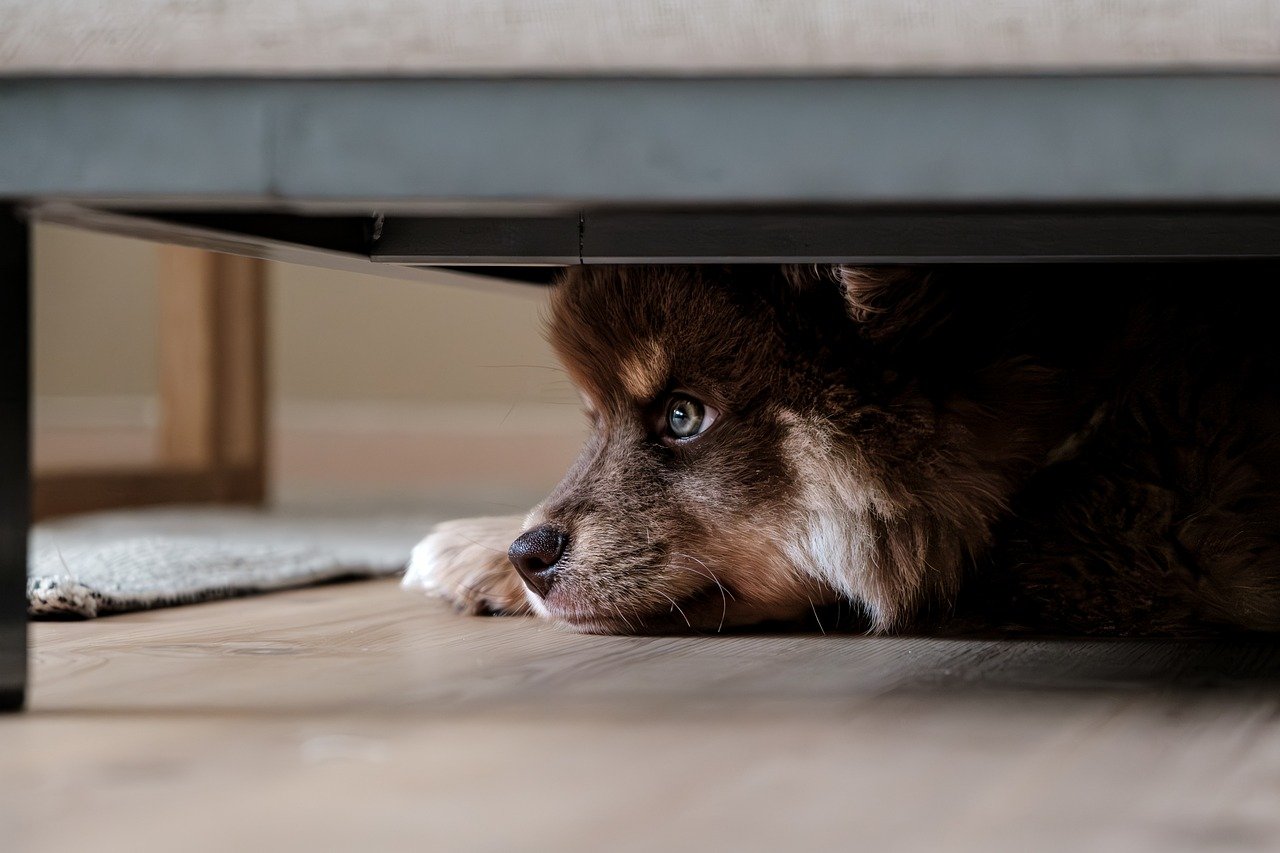
Large Dog Breeds
When it comes to choosing a dog for seniors, large breeds can sometimes get a bad rap. Many people assume that bigger dogs are too much to handle, but that's not always the case! Some large breeds are incredibly gentle, calm, and well-suited for older adults. They can provide companionship and comfort without overwhelming their owners. Imagine having a big, fluffy friend who is as loyal as they come, lounging by your side as you enjoy a good book or a cozy afternoon nap. Sounds perfect, right?
One of the most popular large dog breeds among seniors is the Golden Retriever. These dogs are known for their friendly demeanor and unwavering loyalty. They are patient, easy to train, and always eager to please. A Golden Retriever can be the perfect companion for seniors who enjoy a bit of outdoor activity, as they love going for walks and playing fetch. Their gentle nature makes them excellent therapy dogs, often providing emotional support and companionship to those who need it most. Plus, their affectionate personality means they’ll shower you with love and cuddles!
Another fantastic option is the Labrador Retriever. Labradors are adaptable and loving companions, known for their friendly and outgoing nature. They thrive on human interaction and can easily fit into a senior's lifestyle, whether that involves leisurely strolls in the park or simply relaxing at home. Labs are also known for their intelligence, which makes training them a breeze. They can learn commands quickly and respond well to positive reinforcement. Imagine having a dog that not only keeps you company but also knows how to fetch your slippers! How cool is that?
While larger breeds may require more space and a bit more exercise, they can also be incredibly rewarding. Here’s a quick comparison of the two breeds mentioned:
| Breed | Temperament | Exercise Needs | Training |
|---|---|---|---|
| Golden Retriever | Friendly, Loyal, Patient | Moderate | Easy to Train |
| Labrador Retriever | Outgoing, Friendly, Intelligent | Moderate | Easy to Train |
In summary, while large dog breeds might seem intimidating at first glance, many of them can be the perfect companions for seniors. They offer a balance of affection, loyalty, and ease of care that can enhance the quality of life for older adults. So, if you’re considering adding a furry friend to your life, don’t overlook these gentle giants. They may just turn out to be the best decision you ever made!
- Are large dog breeds good for seniors? Yes, many large dog breeds are gentle and affectionate, making them great companions for seniors.
- What are the exercise needs of large dog breeds? Most large breeds require moderate exercise, which can easily fit into a senior's daily routine.
- Can large dogs be trained easily? Yes, many large breeds, such as Golden Retrievers and Labradors, are known for their intelligence and trainability.
Golden Retriever
When it comes to choosing a dog that embodies the perfect blend of affection, intelligence, and gentleness, the Golden Retriever stands out as a top contender, especially for seniors. These dogs are not just pets; they become part of the family, offering unwavering loyalty and companionship. Imagine coming home after a long day to a furry friend who greets you with joy and enthusiasm—this is the magic that Golden Retrievers bring to the lives of their owners.
Golden Retrievers are known for their friendly demeanor. They have a natural ability to connect with people, making them ideal companions for older adults who may be seeking a loving presence in their lives. Their calm nature allows them to adapt well to various living situations, whether it's a cozy apartment or a spacious house. Plus, their gentle disposition means they are often great with children and other pets, creating a harmonious household.
One of the most appealing aspects of Golden Retrievers is their trainability. They are eager to please and respond well to positive reinforcement, which can be a significant advantage for seniors who may not have the energy or physical ability to manage a more stubborn breed. Regular training sessions can also provide mental stimulation for both the dog and the owner, fostering a deeper bond between them. The joy of teaching your Golden a new trick or command can be incredibly rewarding!
Now, let's talk about their exercise needs. While Golden Retrievers do require regular physical activity, their energy levels are manageable. A couple of daily walks, combined with some playtime in the yard, can keep them happy and healthy. This is particularly beneficial for seniors, as it encourages a routine of light exercise that can be both enjoyable and beneficial for their own health. Plus, having a dog can motivate seniors to stay active, which is crucial for maintaining mobility and overall well-being.
In terms of grooming, Golden Retrievers have a beautiful, dense coat that does require some maintenance. Regular brushing helps to minimize shedding and keeps their coat looking its best. However, the grooming routine can also serve as a wonderful bonding experience between the dog and its owner. Imagine spending a quiet afternoon brushing your Golden Retriever while sharing stories and enjoying each other's company—it's these little moments that enrich life.
In summary, Golden Retrievers are truly remarkable companions for seniors. Their affectionate nature, intelligence, and adaptability make them an excellent choice for anyone looking to add a furry friend to their life. With the right care and attention, a Golden Retriever can bring endless joy and companionship to seniors, enhancing their quality of life in countless ways.
- Are Golden Retrievers good for seniors? Yes, they are friendly, gentle, and easy to train, making them ideal companions.
- How much exercise do Golden Retrievers need? They require regular walks and playtime, but their exercise needs are manageable for seniors.
- Do Golden Retrievers shed a lot? Yes, they have a thick coat that sheds, so regular grooming is necessary.
- Are Golden Retrievers good with other pets? Generally, yes! They are known for their friendly nature and can get along well with other animals.
Labrador Retriever
The is often hailed as one of the most popular dog breeds in the world, and for good reason! These friendly giants are not just known for their playful nature; they also possess a remarkable ability to adapt to various living situations, making them an excellent choice for seniors. With their loving demeanor and boundless energy, Labradors can bring a sense of joy and companionship that is truly unmatched.
One of the most appealing aspects of Labradors is their gentle temperament. They are typically very friendly and sociable, which makes them great companions for older adults who may be looking for a furry friend to help combat loneliness. Labradors are known for their loyalty and affection, and they thrive on human interaction. Imagine coming home after a long day and being greeted by a wagging tail and an eager face—it's hard not to smile!
In terms of care, Labradors are relatively easy to manage. They do require regular exercise, but this can be adjusted to fit the needs of their owner. A leisurely walk around the neighborhood or some playtime in the yard can be sufficient to keep them happy. Plus, their intelligence makes them highly trainable, which can be a significant advantage for seniors who may not have the energy for extensive training sessions. With a little patience and consistency, you can teach your Labrador basic commands and even some fun tricks!
However, it’s essential to be aware that Labradors are prone to certain health issues, such as obesity and hip dysplasia. To mitigate these risks, it's crucial to maintain a balanced diet and ensure they get enough exercise. Regular vet check-ups can also help catch any potential problems early on. Keeping an eye on their weight is especially important, as Labradors love to eat and can easily become overweight if not monitored.
Moreover, Labradors have a friendly disposition that makes them great with children and other pets. This can be particularly beneficial for seniors who have visiting family members or other animals at home. Their playful nature often leads to fun interactions, creating a lively atmosphere that can enhance the quality of life for older adults.
In summary, the is more than just a pet; they can become a cherished member of the family. Their affectionate nature, adaptability, and ease of care make them a fantastic choice for seniors looking for companionship. If you're considering bringing a Labrador into your home, you can expect a loyal friend who will fill your days with joy and love.
- What is the average lifespan of a Labrador Retriever? Labradors typically live between 10 to 12 years.
- Do Labradors require a lot of exercise? While they do need regular exercise, short walks and playtime can suffice for seniors.
- Are Labradors good with children? Yes, Labradors are known for their friendly and gentle nature, making them great companions for kids.
- How often should I take my Labrador to the vet? Regular check-ups every 6 to 12 months are recommended to ensure their health.
Frequently Asked Questions
- What are the best dog breeds for seniors?
When it comes to choosing a dog for seniors, small to medium breeds like Chihuahuas, Pugs, Cavalier King Charles Spaniels, and Basset Hounds are often ideal. These breeds tend to have lower exercise needs and are generally easier to manage, making them perfect companions for older adults.
- How much exercise do these dog breeds need?
Most small and medium dog breeds require less exercise compared to larger breeds. For example, Pugs and Basset Hounds enjoy short walks and playtime, while Golden Retrievers and Labrador Retrievers may need more physical activity. It's essential to consider the owner's ability to provide exercise when selecting a breed.
- Are there any specific health concerns for these breeds?
Yes, certain breeds have predispositions to specific health issues. For instance, Pugs can suffer from respiratory problems due to their short snouts, while Cavalier King Charles Spaniels may be prone to heart conditions. It's crucial to research each breed's health background and consult a veterinarian for guidance.
- How can I train a dog if I am a senior?
Training a dog as a senior can be a rewarding experience! Focus on positive reinforcement techniques, using treats and praise to encourage good behavior. Short, consistent training sessions work best, and patience is key. Engaging with local training classes can also provide valuable support.
- What should I consider before getting a dog?
Before bringing a dog into your home, consider your lifestyle, physical ability, and living situation. Think about how much time you can dedicate to care, grooming, and exercise, as well as any potential allergies or space limitations. It's also wise to evaluate your financial situation, as pets can incur costs for food, vet visits, and supplies.
- Is it better to adopt a dog or buy from a breeder?
Both options have their pros and cons. Adopting from a shelter can save a life and often comes with a lower cost, while reputable breeders may provide a puppy with a known lineage and health history. Ultimately, the choice depends on your personal preferences and circumstances.

